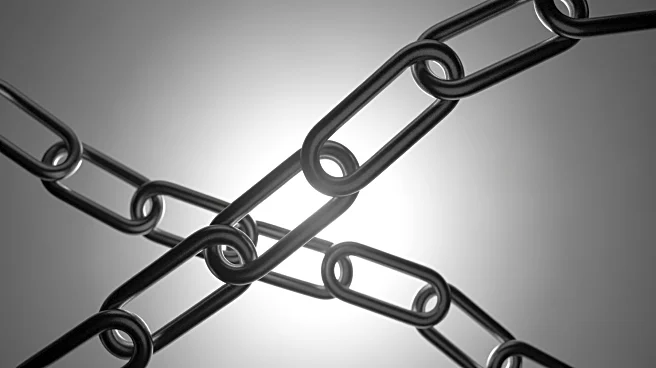What's Happening?
The Federal Circuit has ruled that a North Texas fence manufacturer did not infringe upon four patents related to an easy-to-install fencing system. This decision affirms a prior ruling by the US District
Court for the Northern District of Texas. The patents in question are owned by Barrette Outdoor Living Inc., which had challenged the district court's interpretation of key terms used in the patents, particularly the term 'boss,' described as a nub-like feature. Barrette argued that the district court's interpretation was too narrow, but the Federal Circuit upheld the district court's decision, agreeing with the interpretation of the terms.
Why It's Important?
This ruling is significant for the fencing industry, particularly for companies involved in manufacturing and patenting innovative fencing systems. The decision reinforces the importance of precise language in patent documentation and the interpretation of patent terms. For Barrette Outdoor Living Inc., the ruling represents a setback in their efforts to protect their intellectual property. Conversely, Fortress Iron LP, the rival fence maker, benefits from the decision as it allows them to continue their operations without the threat of patent infringement claims. The case highlights the ongoing legal challenges in patent law and the impact of judicial interpretations on business operations.
What's Next?
Following this decision, Barrette Outdoor Living Inc. may consider further legal options, such as appealing to the Supreme Court, although such actions are rare and challenging. The ruling may also prompt other companies in the industry to review their patent strategies and ensure their patent language is clear and defensible. Additionally, this case may influence future patent litigation, particularly in industries where product features are described using specific technical terms.
Beyond the Headlines
The case underscores the complexities of patent law and the role of judicial interpretation in shaping business practices. It also highlights the competitive nature of industries reliant on patented technologies and the importance of legal strategies in protecting intellectual property. The decision may encourage companies to invest more in legal expertise to navigate patent disputes effectively.











